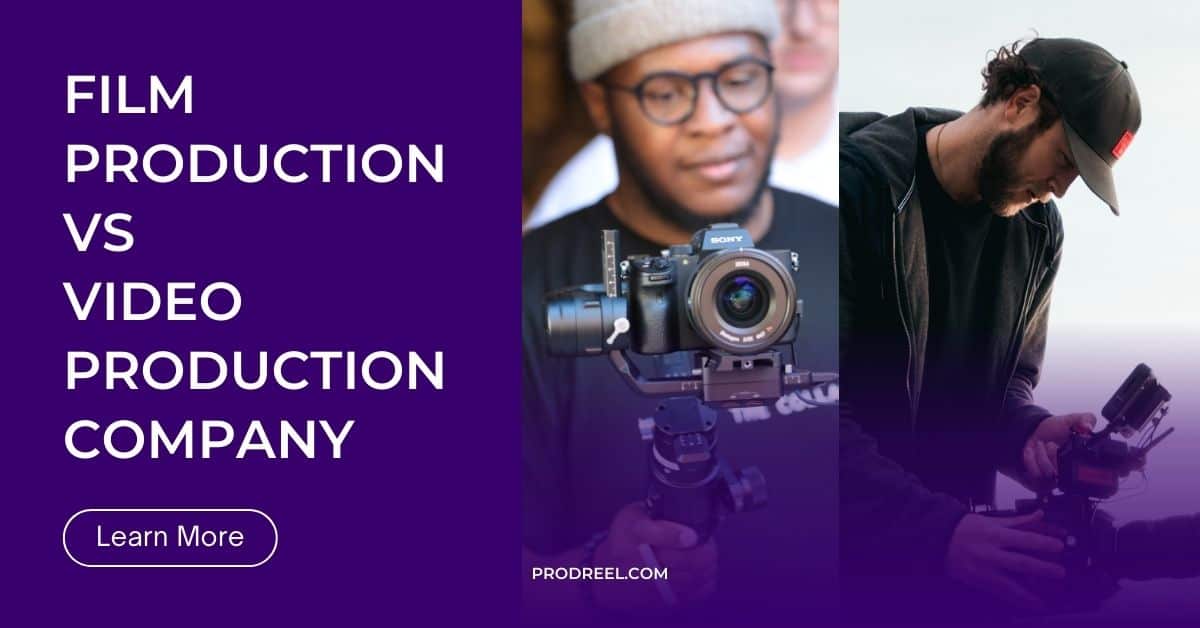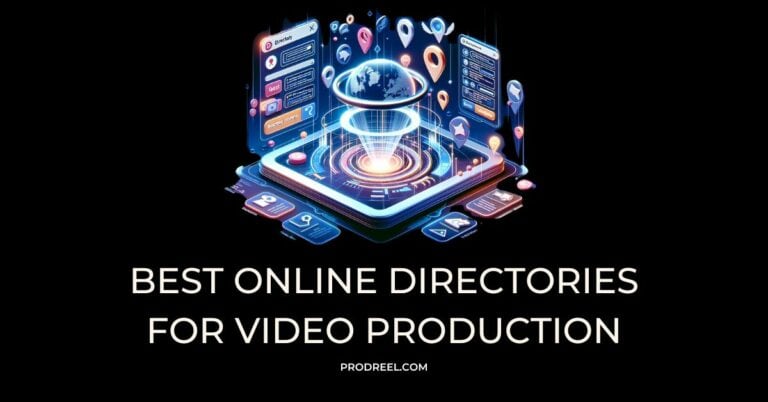A video production company and a film production company are both involved in creating motion pictures, but they typically cater to different types of projects and have different areas of focus.
Factors that differentiate Video and Film Production Companies
Types of Projects
A video production company usually specializes in creating digital video content for a variety of purposes, such as television commercials, corporate videos, promotional content, web series, documentaries, live event coverage, and social media content. Their work is often intended for broadcast on television or distribution through digital channels like streaming platforms, websites, and social media platforms.
A film production company primarily focuses on producing films for theatrical release. These can range from feature-length narrative films to short films, documentaries, and experimental works. The projects produced by film production companies generally aim to achieve artistic or cinematic value and may participate in film festivals, compete for awards, or be distributed through traditional channels like cinemas, physical media (Blu-ray, DVD), or streaming platforms.
Scale and Budget
Video production companies often work on projects with smaller budgets and tighter deadlines compared to film production companies. The scale of video production can range from small, single-camera shoots to more elaborate, multi-camera setups, but generally, video production companies are more focused on efficiency and cost-effectiveness.
Film production companies usually work on larger-scale projects that involve higher budgets, longer shooting schedules, and more complex production logistics. Film productions prioritize storytelling, cinematography, and artistic quality, which often requires more resources and a larger team.
Production Process
Video production companies typically use digital cameras and equipment, which allow for faster turnaround times and more flexible workflows. Video editing is done on computers using editing software, and the final output is usually in a digital format.
Film production companies, while increasingly adopting digital cameras, may still use traditional film cameras and celluloid film stock, which can involve a more complex and time-consuming production process. Editing can be done either by physically cutting and splicing film or by digitizing the footage and editing it on computers.
Target Audience and Clients
Video production companies often cater to a wide range of clients, including businesses, non-profit organizations, educational institutions, government agencies, and individuals. Their primary goal is often to meet the specific needs and objectives of their clients.
Film production companies generally target a broader audience, aiming to create films that appeal to viewers based on their artistic, cultural, or entertainment value. They may collaborate with other stakeholders, such as film studios, distributors, and investors, to bring their projects to fruition.
It is important to note that the distinction between video and film production companies is not always clear-cut, as many companies may work on both types of projects, and the lines between video and film production continue to blur with advancements in technology.
Things to know before working with a production company
Determine Your Goals and Objectives
Before working with a video or film production company, clearly define your goals and objectives for the project. What is the purpose of the production, and what do you hope to achieve? Knowing your target audience, desired message, and the final distribution channels will help guide your decisions and ensure the production company understands your vision.
Research Production Companies
Spend time researching various production companies and their portfolios. Look for companies with experience in the type of project you are planning, and review their past work to gauge their style, quality, and capabilities. Consider their client testimonials, awards, and industry reputation to make an informed decision.
Establish a Budget
Determine your budget before approaching a production company. This will help you find a company that can work within your financial constraints and enable the company to provide realistic suggestions and solutions. Keep in mind that high-quality productions can be costly, so it’s essential to balance your expectations with your budget.
Understand the Production Process
Familiarize yourself with the production process, including pre-production, production, and post-production stages. Understanding these stages will help you communicate effectively with the production company and ensure that you’re on the same page throughout the project.
Check for Clear Communication
Choose a production company with a track record of clear communication and transparency. Regular updates, open lines of communication, and a responsive team are critical for a successful collaboration. Miscommunication can lead to delays, additional costs, and potential dissatisfaction with the final product.
Set Realistic Timelines
Setting realistic timelines for your project is essential. Discuss your deadline expectations with the production company and make sure they can deliver within the timeframe. Keep in mind that high-quality work takes time, and rushing the process can lead to a subpar final product.
Assess the Level of Creativity and Expertise
Evaluate the production company’s level of creativity and expertise in storytelling, cinematography, and editing. A skilled and innovative team can help bring your vision to life and create a compelling final product that resonates with your target audience.
Review Contracts and Agreements
Before signing any contracts or agreements, carefully review the terms and conditions, payment schedules, and deliverables. Make sure you understand the scope of work, any limitations or exclusions, and the company’s policies regarding revisions, copyrights, and ownership of the final product. Consult a legal expert if necessary.







